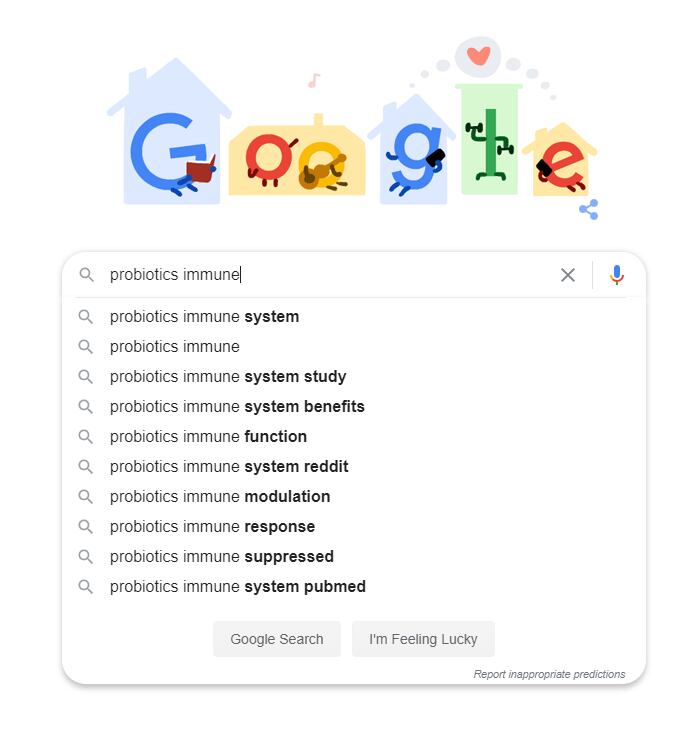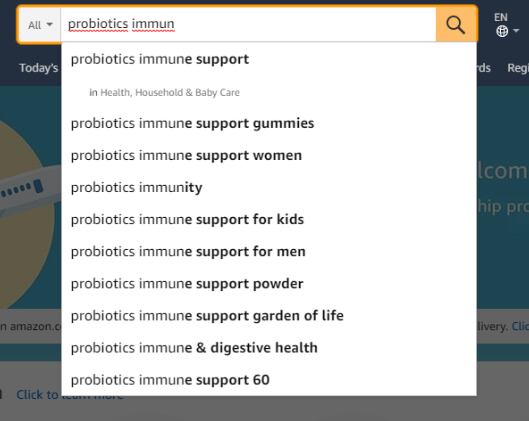Online searches related to probiotics and how they aid immune function have, unsurprisingly, increased in the past two months. In fact, the monthly average for immunity and probiotic searches in the 11 months pre-coronavirus was 3,940, compared to a massive 21,370 in March 2020 (Google Keywords Planner).
But Zoe Coleman, digital marketing manager for Lumina, says while this may be a positive, the more important question here is whether companies can translate this interest into extra sales and ensure interest continues once life goes back to "normal".
“If this trend of consumers making investments in their wellbeing goes long-term, immunity is likely to be an even greater key concern than pre COVID-19, bearing in mind immunity was already one of the top three health claims on probiotic products in 25 countries worldwide, pre-pandemic," Coleman says in her blog post.
According to Lumina’s recent immunity report, of the 1,000 immunity probiotics captured in the report, Lumina saw a spectacular 786% growth in online customer reviews in two years (December 2017 – January 2020) to reach 1.8 million across 25 countries."
Coleman argues this period of increased interest in immunity is an ideal time to do keyword research as there is more data to work with.
“The increased level of search volume in a particular area means you’ll be more likely to spot search trends in tools like Google Keyword Planner and more ideas for longer, niche searches by checking out Google’s predictive search and 'Searches related to…' section.”
Search engine optimisation (SEO)
Coleman argues that choosing words more carefully when creating content for websites may be even more fruitful than paying for traffic. A study from Wolfgang Digital in 2019 reported that organic makes up 42% of traffic to e-commerce sites in retail and 35% of revenue vs 18% and 20% respectively from paid search.
"Many businesses in the probiotics space are missing a huge opportunity by not optimising their content to rank organically. Product pages and other content that successfully ranks well for relevant search terms will continue to drive traffic to your website long after you have stopped investing in it."
She suggests that any B2B company supplying a specific strain or ingredient with ties to immunity should ensure all press releases, published studies and blog posts 'capitalise' on key search words.
“It’s important to understand how search engines rank content before making these changes. Google’s Hummingbird update in 2013 increased the importance of natural language and related topical keywords, so using the same three or four desirable keywords with search volume in an extremely repetitive fashion is not a good strategy.
“Instead, use your specified keyword or keywords just once or twice and use tools like Answer The Public or the People Also Ask section of the search results page to find out what questions your audience have about the topic. Google’s priority is making sure the content it suggests satisfies the searcher’s intent and demonstrates expertise.”
These companies should also look into what 'longer-tail' immunity keywords are being used. These are the words used in search phrases which are longer and more specific than a simple ‘probiotics for immunity’ search.
To discover longer-tail keywords, B2C companies can simply type an immunity keyword in Google and Amazon’s search bar and both will make suggestions based on the most popular searches.
Coleman explains that whilst these longer-tail words will get less search traffic due to fewer people searching for them, they will usually provide a higher conversion value as they are more specific, meaning there's less competition from other companies using those phrases on their websites.
Time to educate
She adds that now might be a great time to create some longer blog posts and articles, especially as consumers may now actually have the time to read them.
"If you supply a probiotics ingredient involved in multiple immunity studies and trials, consider writing a longer piece of content summarising these with target keywords in mind.
“There is a unique opportunity for brands to create/optimise product descriptions or blog content to answer the most common questions consumers have.
“This content on COVID-19 facts and information from Biogaia also addresses probiotics and immunity generally, summarising findings from studies involving their strains – with references and links to them where possible."
“Outbound links can help Google understand what industry or niche you sit in, as well as demonstrate trust and increase the quality of your site. References make for a more positive user experience, so they certainly do no harm in terms of SEO.”


If selling on your own e-commerce page and on Amazon, Coleman advises companies use different content on each. This means your content on each site will be unique, which can help your own e-commerce product page rank better in Google.
Getting around the “probiotics” challenge
Of course, finding keyword ideas that also adhere to the law becomes a challenge when the term ‘probiotic’ is prohibited. But Coleman has a catalogue of other options to successfully work around this:
- Focus on other attributes of the product such as format, target audience and specific strain combined with immunity.
- Make use of other terms often used interchangeably with ‘probiotics’ by your target audience, such as ‘good bacteria’, ‘friendly bacteria’ and ‘gut health’.
- Encourage your customers to write reviews by making it as quick and easy as possible. Google’s bots crawl reviews (check your product page is set up correctly for this) so, if a customer uses the term ‘probiotic’, search engines will pick this up. Just don’t ‘like’ the review, as this will be considered a breach of regulations.
- The great news is, when using Amazon, you can still use the term ‘probiotic’ as a backend keyword, which is hidden from consumer view but still aids your product visibility.



